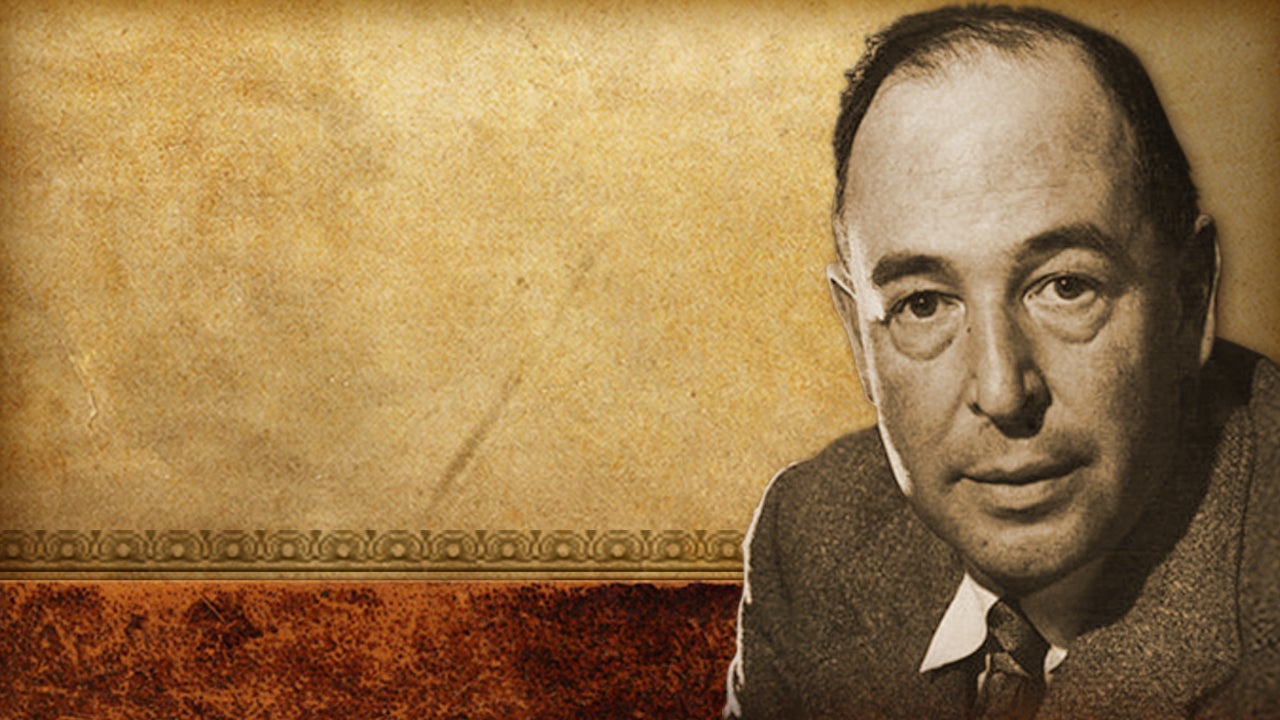
Literature
An Introduction to C.S. Lewis: Writings and Significance
9 lessons
6.5h total length
Create Your Account to Get Instant Access to “An Introduction to C.S. Lewis: Writings and Significance”
Examine the timeless wisdom of C.S. Lewis.
Lessons in this course

37:15
lesson 1
Introduction / “Men Without Chests”
C.S. Lewis is most widely known for his fiction and his Christian apologetics. However, he was also a professor at Oxford—and later Cambridge—where he was a first-rate scholar of English literature. In his philosophical work, The Abolition of Man, Lewis argued that truth, beauty, and the good are not merely a matter of personal preference. Teaching such a view, Lewis warned, would lead to the abolition of man.

33:25
lesson 2
Lewis’s Apologetics: Imagination and Reason, Part One
C.S. Lewis was the greatest Christian apologist of the 20th century. The success of his apologetics was due in large part to the skillful way in which he presented them—with imaginative skill and imaginative intent. Lewis believed that the human faculty of reason is the organ of truth and the human faculty of imagination is the organ of meaning. Because imagination is the indispensable companion of reason, Lewis encouraged the embrace of meaningful myths in his apologetics.

30:40
lesson 3
Lewis’s Apologetics: Imagination and Reason, Part Two
C.S. Lewis believed that a reasoned defense of Christianity, if it is to be effective, should approximate the language of the Christ story imaginatively. Since imagination is the organ of meaning, Lewis almost always began his apologetic works by immersing the reader in meaningful situations. However, imagination and reason are by themselves insufficient means of persuasion and eventual conversion. The reorientation of man’s will to God’s is also necessary, which can only come about through divine intervention.

39:57
lesson 4
Lewis’s Fiction: Narnia and the Storied Moral World
In writing his Chronicles of Narnia, C.S. Lewis made a bold attempt to rehabilitate the modern imagination. Lewis believed that the ideas and experience of modernity undermine the imagination, and his fiction aims to re-sensitize readers to the wonders of God’s creation. Originally conceived merely as images and stories, The Chronicles of Narnia became a metaphorical tale of human nature and Christian truths.

42:44
lesson 5
Lewis’s Fiction: The Space Trilogy—A Cosmos of Old Wars and New Battles
Before he wrote Chronicles of Narnia, C.S. Lewis authored a science fiction trilogy, comprised of three books: Perelandra, Out of the Silent Planet, and That Hideous Strength. In this series, Lewis emphasizes the fact that human nature is beyond man’s will, the importance of objective truth, and the beauty of family and of distinctions between the sexes. For Lewis, space is not an empty vacuum to be explained by scientific discovery, but is instead filled with vitality and liveliness and is a beauty to behold.

27:27
lesson 6
Lewis’s Literary Criticism: The Value of Indirect Communication
C.S. Lewis was keenly interested in the value of indirect communication, and imaginative hiddenness was central to his literary criticism. Lewis believed that historical criticism and character criticism were valuable but had perfected their own terminology. Lewis was interested in a different kind of literary criticism, one that sought to understand the atmosphere or quality of literature.

32:21
lesson 7
Lewis’s Literary Criticism: Medieval Cosmology
C.S. Lewis attached significant importance to medieval cosmology, which viewed what we today call space as the heavens or the cosmos. This view contradicted the modern notion of space as simply a barren vacuum. Lewis reveled in this pre-Copernican understanding, not only because he thought it beautiful and good but ultimately because of its permanent spiritual significance.

28:22
lesson 8
“The Way”
In The Abolition of Man, C.S. Lewis writes that adopting the idea that truth and beauty are purely subjective would lead to the abolition of man. To refute this idea, Lewis turns to what he calls “the Tao”—the Chinese word meaning “the way”—a set of general rules found in all cultures and times. Lewis argues the Tao will lead those who follow it to the good and to a recognition of truth.

32:05
lesson 9
“The Abolition of Man”
In That Hideous Strength, the companion novel to The Abolition of Man, C.S. Lewis paints a picture of what life might look like if it were true that, as the characters Gaius and Titius contend, beauty and truth are subjective. The result is a universal despotism that emanates from an increasingly powerful scientific bureaucracy. Lewis rejects this despotism and instead embraces the true beauty of human nature and all of God’s creation.
Enroll in "An Introduction to C.S. Lewis: Writings and Significance" by clicking the button below.
What Current Students Are Saying
Takes the student through the full context of the course subject matter. Wonderful insight into how we strayed and its consequences and offers a solution.
Create your FREE account today!
All you need to access our courses and start learning today is your email address.